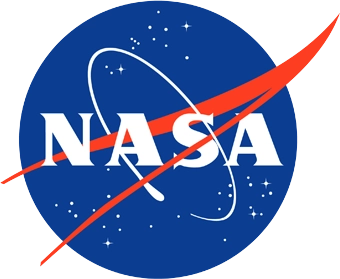Jessica Erlingis is an assistant research scientist at the University of Maryland and NASA Goddard Space Flight Center (GSFC). Her research interests include land surface modeling, specifically to further the understanding of hydrometeorological extremes and land-atmosphere interactions. She is a member of the Land Information System team at NASA GSFC and has focused on land surface modeling for water resources applications in the western United States.
Jessica M Erlingis
(ASSISTANT RESEARCH SCIENTIST)
| Email: | jessica.erlingislamers@nasa.gov |
| Phone: | 301.614.5285 |
| Org Code: | 617 |
| Address: |
NASA/GSFC Mail Code 617 Greenbelt, MD 20771 |
| Employer: | UNIV OF MARYLAND COLLEGE PARK |
Brief Bio
Current Projects
Western Land Data Assimilation System
Hydrology / Water Cycle
Education
Ph.D. Meteorology, University of Oklahoma, 2017
Dissertation: Moisture Sources for Flash Floods in the United States
M.S. Environmental Engineering, Duke University, 2012
Thesis: An Investigation of the Role of Land-Atmosphere Interactions on Nocturnal Convective Activity in the Southern Great Plains
B.S. Meteorology, University of Oklahoma, 2010
Summa cum laude; Minors in Mathematics and Spanish
Publications
Refereed
2021. "A high‐resolution land data assimilation system optimized for the western United States." JAWRA Journal of the American Water Resources Association 57 (5): 692-710 [10.1111/1752-1688.12910] [Journal Article/Letter]
2019. "Diagnosing Moisture Sources for Flash Floods in the United States. Part I: Kinematic Trajectories." Journal of Hydrometeorology 20 (8): 1495-1509 [10.1175/jhm-d-18-0119.1] [Journal Article/Letter]
2019. "Diagnosing Moisture Sources for Flash Floods in the United States. Part II: Terrestrial and Oceanic Sources of Moisture." Journal of Hydrometeorology 20 (8): 1511-1531 [10.1175/jhm-d-18-0120.1] [Journal Article/Letter]
2018. "Evaluation of Operational and Experimental Precipitation Algorithms and Microphysical Insights during IPHEx." Journal of Hydrometeorology 19 (1): 113-125 [10.1175/jhm-d-17-0080.1] [Journal Article/Letter]
2017. "The HMT Multi-Radar Multi-Sensor Hydro Experiment." Bulletin of the American Meteorological Society 98 (2): 347-359 [10.1175/bams-d-15-00283.1] [Journal Article/Letter]
2017. "The FLASH Project: Improving the Tools for Flash Flood Monitoring and Prediction across the United States." Bulletin of the American Meteorological Society 98 (2): 361-372 [10.1175/bams-d-15-00247.1] [Journal Article/Letter]
2015. "The Diurnal Cycle of Precipitation in Regional Spectral Model Simulations over West Africa: Sensitivities to Resolution and Cumulus Schemes." Weather and Forecasting 30 (2): 424-445 [10.1175/waf-d-14-00013.1] [Journal Article/Letter]
2014. "A Study of the Role of Daytime Land–Atmosphere Interactions on Nocturnal Convective Activity in the Southern Great Plains during CLASIC." Journal of Hydrometeorology 15 (5): 1932-1953 [10.1175/jhm-d-14-0016.1] [Journal Article/Letter]
2012. "Evaluation of Tools Used for Monitoring and Forecasting Flash Floods in the United States." Weather and Forecasting 27 (1): 158-173 [10.1175/waf-d-10-05043.1] [Journal Article/Letter]
2010. "Remote collection and analysis of witness reports on flash floods." Journal of Hydrology 394 (1-2): 53-62 [10.1016/j.jhydrol.2010.05.042] [Journal Article/Letter]
